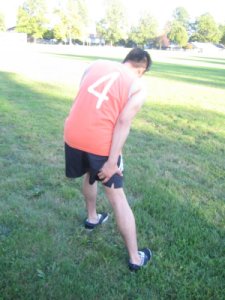
Rectal and anal pain is a common complaint that will be experienced by almost everyone at least once during one point in their lives. The pain associated is usually minor and is not frequently associated as a symptom for a serious underlying medical condition. However, there are times when the pain can be excruciating due to the many nerve endings in the perianal region. Rectal and anal pain is caused by a wide variety of causes, which will be discussed in details later.
Diagnosis is not particularly difficult and can be managed at home with appropriate treatment. The information mentioned below should not be substituted for medical diagnosis or advice. Always seek medical attention when necessary. To learn more about treating pains in the different parts of the body, enrol in First Aid Courses, equipped with St Mark James training, to learn how to properly respond and handle medical situtations.
What Causes Rectal and Anal Pain?
Majority of the causes associated with resulting to rectal and anal pain are benign and do not pose serious harm.
- Anal fissure
- Small tearing in the skin at the opening of the rectum
- Caused by excessive passage of hard stool
- Haemorrhoids
- Swelling of the vein/s at the anus
- Caused by straining during bowel movements
- Proctalgia fugax
- Spasm of the anal sphincter
- No known cause
- Levator ani syndrome
- Spasms of muscles surrounding and supporting the anus
- Infection
- Anorectal abscesses
- Proctitis: inflammation of anal opening and rectal lining
- Inflammatory bowel disease
- Crohn’s disease
- Ulcerative colitis
- Foreign rectal body
- Often as part of sexual misadventures
- Bottles, sex toys, broomstick, etc.
- Cancer
What Symptoms are Associated with Rectal and Anal Pain?
- Anal fissure:
- Sharp pain at first but reduces to dull aching
- Minimal bleeding
- Haemorrhoids: swelling of the vein/s at the anus
- Usually mild pain
- May progress to excessive pain if haemorrhoid thrombosis occurs
- Proctalgia fugax
- Abrupt and severe pain that typically lasts for less than a minute
- May appear daily for several weeks or months
- Levator ani syndrome
- Tight pressure inside the rectal passage
- Aggravated by sitting and relieves with walking or standing
- Infection
- Anorectal abscess: pulsating pain that exacerbates for the first few days but generally improves
- Inflammatory bowel disease
- Foreign rectal body
- Bleeding and pain
- Sometimes asymptomatic at first
- Cancer
How is First Aid Given for Rectal and Anal Pain?
Always seek medical advice or care for proper diagnosis of rectal and anal pain. However, in cases wherein immediate care may not be sought, there are several ways to relieve pain and discomfort.
- For most cases of rectal and anal pain, try sitz baths for 10 minutes. Sitz baths are warm water baths in a sitting position. The frequency will depend on the cause but it is generally recommended to do this at least thrice in a day.
- Eat a high fibre diet to soften stools and minimize pain during bowel movements. Drink copious amounts of water.
- Avoid causing further trauma to the area by scratching and scrubbing, among others. Avoid using any kind of soap on the anus.
- Over-the-counter anti-inflammatory medications such as, ibuprofen and naproxen may be taken but seek medical approval first.
- In cases of anal fissures, hydrocortisone cream may be applied topically to reduce pain.
- Avoid increasing moisture in the anus as it may aggravate rectal and anal pain.